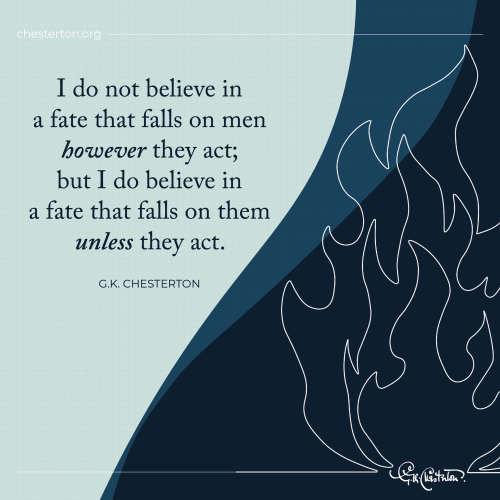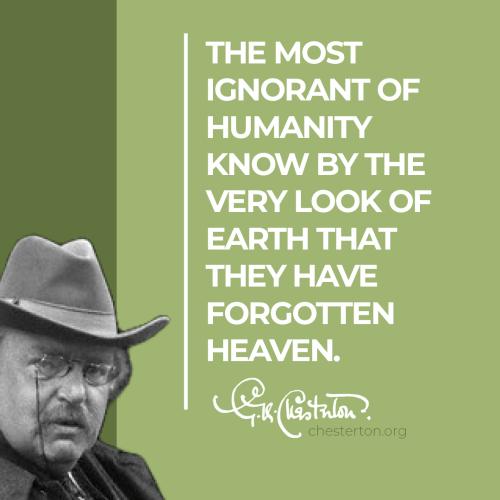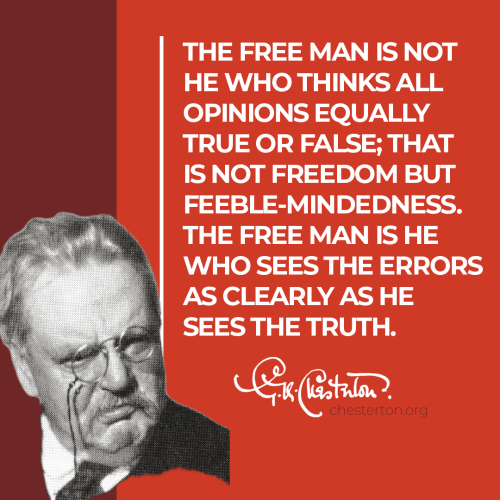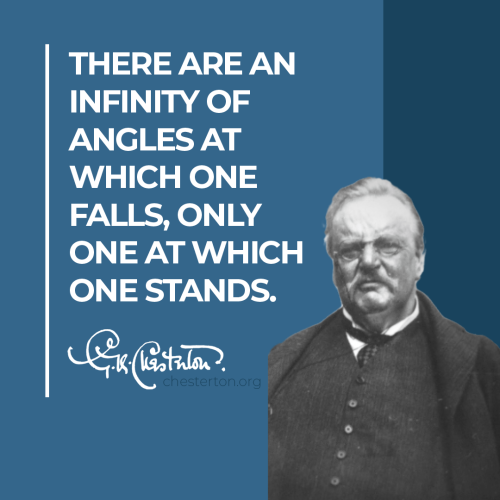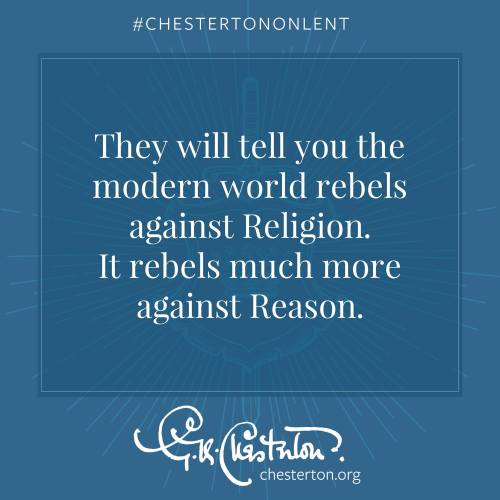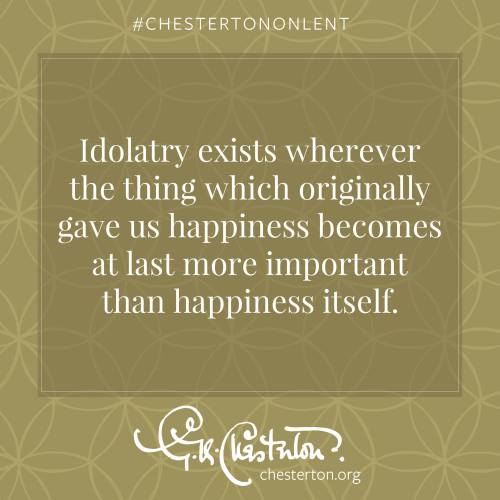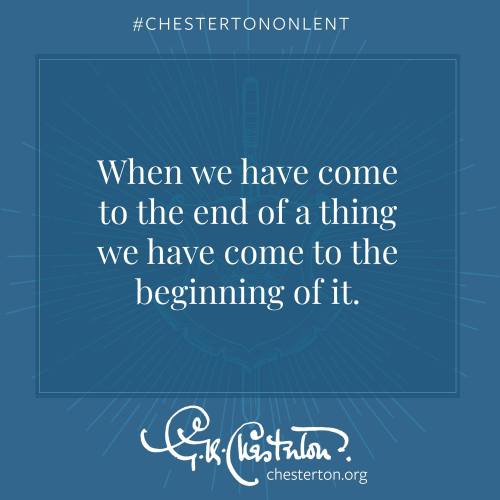#chesterton
“…it is well to keep before our eyes the supreme adventure of a virtue. If you are brave, think of the man who was braver than you. If you are kind, think of the man who was kinder than you.
That is what was meant by having a patron saint.”
—G.K. Chesterton:Utopia of Usurers
Cycled up a big hill to get the the windmill. Gorgeous views over Warwickshire. Definitely proud of my achievement. Beautifully restored windmill. @marinbikes_uk
***
#warwickshire #windmill #chestertonwindmill #chesterton #bikeride #marinpointreyes #hybrid #hybridbike #fitness #bikestagram #cycling #freshair #bankholidayweekend #lastdayofmay #freedom #gettingfit #veganfitness #view #viewoverwarwickshire #restored (at Chesterton Windmill)
https://www.instagram.com/p/CPiwp6cFOGL/?utm_medium=tumblr
Post link

The men signed of the cross of Christ
Go gaily in the dark. …
Night shall be thrice night over you,
And heaven an iron cope.
Do you have joy without a cause
Yea, faith without a hope?
– G.K. Chesterton,The Ballad of the White Horse
“Even what we call our material desires are spiritual, because they are human. Science can analyse a pork-chop, and say how much of it is phosphorus and how much is protein; but science cannot analyse any man’s wish for a pork-chop, and say how much of it is hunger, how much custom, how much nervous fancy, how much a haunting love of the beautiful. The man’s desire for the pork-chop remains literally as mystical and ethereal as his desire for heaven.”
- GK Chesterton, Heretics
“A new morality has burst upon us with some violence in connection with the problem of strong drink; and enthusiasts in the matter range from the man who is violently thrown out at 12.30, to the lady who smashes American bars with an axe. In these discussions it is almost always felt that one very wise and moderate position is to say that wine or such stuff should only be drunk as a medicine. With this I should venture to disagree with a peculiar ferocity. The one genuinely dangerous and immoral way of drinking wine is to drink it as a medicine. And for this reason, If a man drinks wine in order to obtain pleasure, he is trying to obtain something exceptional, something he does not expect every hour of the day, something which, unless he is a little insane, he will not try to get every hour of the day. But if a man drinks wine in order to obtain health, he is trying to get something natural; something, that is, that he ought not to be without; something that he may find it difficult to reconcile himself to being without. The man may not be seduced who has seen the ecstasy of being ecstatic; it is more dazzling to catch a glimpse of the ecstasy of being ordinary…. It is easy to deny one’s self festivity; it is difficult to deny one’s self normality. Hence comes the fact which every doctor knows, that it is often perilous to give alcohol to the sick even when they need it. I need hardly say that I do not mean that I think the giving of alcohol to the sick for stimulus is necessarily unjustifiable. But I do mean that giving it to the healthy for fun is the proper use of it, and a great deal more consistent with health.
The sound rule in the matter would appear to be like many other sound rules—a paradox. Drink because you are happy, but never because you are miserable. Never drink when you are wretched without it, or you will be like the grey-faced gin-drinker in the slum; but drink when you would be happy without it, and you will be like the laughing peasant of Italy. Never drink because you need it, for this is rational drinking, and the way to death and hell. But drink because you do not need it, for this is irrational drinking, and the ancient health of the world.”
- GK Chesterton, Heretics
“Suppose that a great commotion arises in the street about something, let us say a lamp-post, which many influential persons desire to pull down. A grey-clad monk, who is the spirit of the Middle Ages, is approached upon the matter, and begins to say, in the arid manner of the Schoolmen, ‘Let us first of all consider, my brethren, the value of Light. If Light be in itself good—’ At this point he is somewhat excusably knocked down. All the people make a rush for the lamp-post, the lamp-post is down in ten minutes, and they go about congratulating each other on their unmediaeval practicality. But as things go on they do not work out so easily. Some people have pulled the lamp-post down because they wanted the electric light; some because they wanted old iron; some because they wanted darkness, because their deeds were evil. Some thought it not enough of a lamp-post, some too much; some acted because they wanted to smash municipal machinery; some because they wanted to smash something. And there is war in the night, no man knowing whom he strikes. So, gradually and inevitably, to-day, to-morrow, or the next day, there comes back the conviction that the monk was right after all, and that all depends on what is the philosophy of Light. Only what we might have discussed under the gas-lamp, we now must discuss in the dark.“
- GK Chesteron, Heretics
“The theory of the unmorality of art has established itself firmly in the strictly artistic classes. They are free to produce anything they like. They are free to write a Paradise Lost in which Satan shall conquer God. They are free to write a Divine Comedy in which heaven shall be under the floor of hell. And what have they done? Have they produced in their universality anything grander or more beautiful than the things uttered by the fierce Ghibbeline Catholic, by the rigid Puritan schoolmaster? We know that they have produced only a few roundels. Milton does not merely beat them at his piety, he beats them at their own irreverence. In all their little books of verse you will not find a finer defiance of God than Satan’s. Nor will you find the grandeur of paganism felt as that fiery Christian felt it who described Faranata lifting his head as in disdain of hell. And the reason is very obvious. Blasphemy is an artistic effect, because blasphemy depends upon a philosophical conviction. Blasphemy depends upon belief and is fading with it. If any one doubts this, let him sit down seriously and try to think blasphemous thoughts about Thor. I think his family will find him at the end of the day in a state of some exhaustion.”
- GK Chesterton, Heretics
‘It is common enough that common things should be poetical; it is not so common that common names should be poetical. In most cases it is the name that is the obstacle. A great many people talk as if this claim of ours, that all things are poetical, were a mere literary ingenuity, a play on words. Precisely the contrary is true. It is the idea that some things are not poetical which is literary, which is a mere product of words. The word “signal-box” is unpoetical. But the thing signal-box is not unpoetical; it is a place where men, in an agony of vigilance, light blood-red and sea-green fires to keep other men from death. That is the plain, genuine description of what it is; the prose only comes in with what it is called. The word “pillar-box” is unpoetical. But the thing pillar-box is not unpoetical; it is the place to which friends and lovers commit their messages, conscious that when they have done so they are sacred, and not to be touched, not only by others, but even (religious touch!) by themselves. That red turret is one of the last of the temples. Posting a letter and getting married are among the few things left that are entirely romantic; for to be entirely romantic a thing must be irrevocable. We think a pillar-box prosaic, because there is no rhyme to it. We think a pillar-box unpoetical, because we have never seen it in a poem. But the bold fact is entirely on the side of poetry. A signal-box is only called a signal-box; it is a house of life and death. A pillar-box is only called a pillar-box; it is a sanctuary of human words.’
- GK Chesterton, Heretics
I do not believe in a fate that falls on men however they act; but I do believe in a fate that falls on them unless they act.
(Illustrated London News, April 29, 1922)
Post link
“The most ignorant of humanity know by the very look of earth that they have forgotten heaven.”
#GKChesterton
(“God and Comparative Religion,” The Everlasting Man)
Post link
“Right is right, even if nobody does it. Wrong is wrong, even if everybody is wrong about it.”
#GKChesterton
(Illustrated London News, May 11, 1907)
Post link
“The free man is not he who thinks all opinions equally true or false; that is not freedom but feeble-mindedness. The free man is he who sees the errors as clearly as he sees the truth.”
#GKChesterton
(“The Bigot,” Lunacy and Letters)
Post link
“The way to love anything is to realize that it might be lost.”
#GKChesterton
(“The Advantages of Having One Leg,” Tremendous Trifles)
Post link
“A dead thing can go with the stream, but only a living thing can go against it.”
#GKChesterton
(“The Five Deaths of the Faith,” The Everlasting Man)
Post link
“There are an infinity of angles at which one falls, only one at which one stands.”
#GKChesterton
(“The Paradoxes of Christianity,” Orthodoxy)
Post link
They will tell you the modern world rebels against Religion. It rebels much more against Reason.
#GKChesterton
(Listener, Feb.20, 1935)
Post link
Idolatry exists wherever the thing which originally gave us happiness becomes at last more important than happiness itself.
#GKChesterton
(The Daily News, September 11, 1901)
Post link
When we have come to the end of a thing we have come to the beginning of it.
#GKChesterton
(“The Lion,” Tremendous Trifles)
Post link


